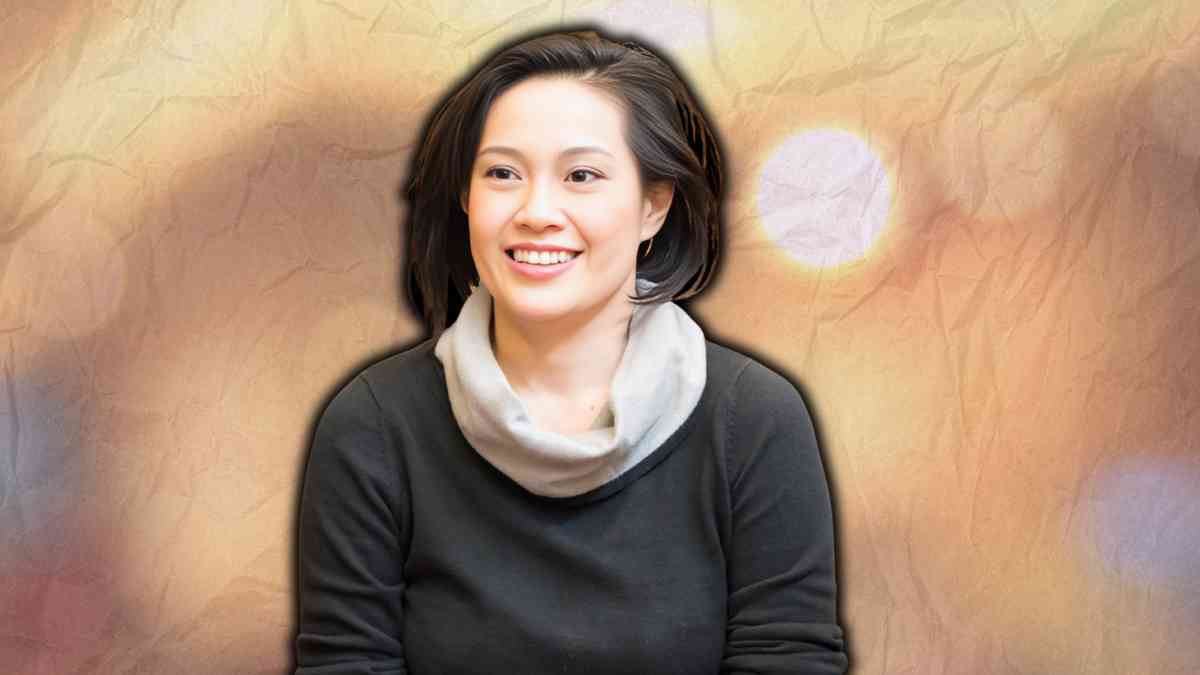Wendy Kweh: The Versatile Actress Bridging East and West on Screen and Stage

When you think of quietly brilliant performances on British television and theatre, Wendy Kweh might not be the first name that comes to mind — but it should be. Over the past two decades, she has carved out a dynamic and diverse career in the UK entertainment industry. From gripping dramas on The Bill and Holby City to compelling roles in contemporary theatre, Kweh’s acting journey is a testament to versatility, resilience, and quiet brilliance.
Born in Singapore and now based in the UK, Wendy Kweh represents the growing wave of Asian talents making a profound impact in Western media. Her story is not just one of performance but of bridging cultures, challenging norms, and continually reinventing herself with every role she takes on.
Early Life and Journey to the UK
Wendy Kweh was born and raised in Singapore. From a young age, she showed a flair for performance, particularly in language and expression. The seeds of acting were sown early, but it wasn’t until her move to the UK in the 1990s that she fully embraced a professional acting path.
Upon arriving in the UK, Kweh enrolled at the prestigious Royal Academy of Dramatic Art (RADA), one of the top drama schools in the world. At RADA, she honed her craft, gaining both classical and contemporary training that would become the foundation of her richly layered performances.
Breaking Through: The Bill and Early Television Work
Wendy Kweh’s first major break came with her role in The Bill, a long-running British police procedural drama. She portrayed Detective Constable Suzie Sim, a tough yet emotionally intelligent officer whose presence on screen was both powerful and understated. Her time on the show earned her recognition within industry circles and proved her ability to deliver complex performances in high-pressure roles.
Soon after, she made guest appearances in iconic British series such as Coronation Street, Casualty, Doctors, and EastEnders. These roles, although brief, showcased her range and ability to seamlessly fit into various television genres — from soap operas to medical dramas and beyond.
Commanding the Stage: Theatre as Her Playground
While television brought her into the public eye, theatre is where Wendy Kweh truly shines. Her stage work spans the classics and modern dramas, often performed at some of the UK’s most prestigious venues, including the Royal Court Theatre, Chichester Festival Theatre, and the National Theatre.
One of her most talked-about performances was in the UK premiere of Antigone at Mercury Theatre, where she played Creon in a bold, gender-blind casting decision. Her portrayal brought new depth to a well-known tragic figure, earning praise for both its emotional gravity and intellectual nuance.
She has also performed in productions such as:
-
Chimerica (Almeida and West End)
-
Much Ado About Nothing
-
Romeo and Juliet
-
Boeing Boeing
-
Julius Caesar
-
Crave
These roles highlight her willingness to push artistic boundaries, embrace bold storytelling choices, and use her identity not as a limitation but as a lens through which classic stories gain fresh relevance.
Holby City and Representation in Medical Drama
In 2014, Wendy Kweh joined the cast of Holby City, a long-running BBC medical drama. She played Amy Teo, a consultant pharmacist with a fierce dedication to her work and a complicated personal life. Her time on the show not only added a layer of emotional complexity to the series but also marked an important moment for East Asian representation on British television.
At a time when diversity in media was beginning to take center stage, Kweh’s character stood as a multidimensional, non-stereotypical Asian professional — smart, driven, and unapologetically human. Fans of the show appreciated the authenticity she brought to the role, as well as the way she helped normalize Asian visibility in prime-time TV.
Film and Radio: More Than a Face on Screen
Although Wendy Kweh is best known for her television and theatre work, her film and radio performances deserve recognition. She has appeared in international films like Snowden, directed by Oliver Stone, and Hot Hot Hot, a European indie comedy.
On radio, she has lent her voice to dramas on the BBC World Service, including the popular series Westway. Her vocal performances are as emotive and controlled as her on-screen work, showing another side of her considerable talent.
Why Wendy Kweh’s Career Matters
In an industry that often typecasts Asian actors into limiting roles, Wendy Kweh’s career stands as a quiet rebellion. She refuses to be pigeonholed. Whether she’s portraying a tragic Greek king, a modern-day detective, or a hospital consultant, she approaches each role with thoughtfulness, authenticity, and emotional depth.
Her presence in mainstream British media is also significant for representation. For younger British Asians or international students hoping to pursue careers in the arts, Kweh serves as a blueprint of what’s possible with talent, training, and tenacity.
Challenges and Triumphs: Navigating a Competitive Industry
Like many actors from underrepresented backgrounds, Kweh has faced her share of challenges. Breaking into the British entertainment industry as a Singaporean-Chinese actress in the late 1990s and early 2000s was no easy feat. Roles for Asian actors were few and far between, and those that did exist were often one-dimensional or based on tired stereotypes.
Yet Kweh persisted. By taking a wide range of roles and excelling in each, she gradually shifted perceptions and opened doors — not just for herself, but for others like her. Today, she continues to build a meaningful, sustainable career based on artistic integrity rather than industry trends.
Her Craft: The Essence of Wendy Kweh’s Acting Style
What makes Wendy Kweh so compelling to watch is her emotional precision. She doesn’t oversell her characters. Instead, she draws you in with subtlety — a glance, a pause, a perfectly timed line delivery.
Directors often praise her for her ability to convey volumes of emotion with very little dialogue. This makes her especially powerful in stage productions where stillness, breath control, and presence are crucial. Her method leans more toward internal transformation than external showiness — a hallmark of deeply grounded actors.
Looking Ahead: What’s Next for Wendy Kweh?
Although she tends to keep a low profile off-screen, there is no doubt that Wendy Kweh’s career is far from over. With increased awareness around casting diversity and a hunger for nuanced storytelling, the landscape is primed for actors like her.
As streaming services look beyond traditional formats and global stories gain traction, Kweh’s unique cultural duality and depth of experience make her an ideal choice for lead roles in both British and international productions.
Whether it’s television, theatre, or film, expect to see more of her — and hopefully, in roles that continue to challenge both audience and artist alike.
Conclusion: Wendy Kweh Deserves the Spotlight
In a media landscape saturated with fleeting fame and viral sensations, Wendy Kweh is a refreshing reminder of what lasting talent looks like. Her career isn’t built on noise but on consistency, craft, and cultural impact.
For aspiring actors, especially those from Asian or immigrant backgrounds, she proves that it’s possible to forge a path on your own terms — even in industries slow to change. And for audiences, she offers the rare gift of performances that linger long after the curtain falls or the credits roll.



